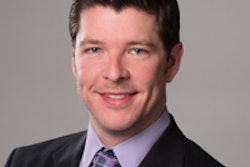
An Ohio appellate court has affirmed a ruling upholding a noncompete agreement that restricted a dentist from practicing within 30 miles of his previous practice. The dentist who sold his practice claims the restriction referred to driving distance, not straight-line distance.
R. Douglas Martin, DDS, sold his practice in Washington Court House, OH, to David Ginn, DDS, in 2010. One of the terms of the sale was a noncompete agreement in which Dr. Martin promised that he wouldn't practice dentistry within 30 miles of Dr. Ginn's business for five years, according to court records.
Dr. Martin sold his practice because he wanted to work part time for the Veterans Affairs department, his attorney, Mark Landes, told DrBicuspid.com. Dr. Ginn already had an established practice in the city and wanted to expand through the purchase, court records noted.
As part of the plan to transition Dr. Martin's patients to Dr. Ginn, they agreed that Dr. Martin would work as an employee of Dr. Ginn's one day a week. However, the relationship between Martin and Ginn deteriorated, and the employment relationship ended after only six months.
Soon thereafter, Dr. Martin started working for Stonecreek Dental Care in Chillicothe. When driving between the two offices, the distance is more than 30 miles, but it is less than 30 miles when measuring the distance in a straight line or "as the crow flies," court records state. Stonecreek Dental is 27 miles from Dr. Ginn's office, according to his lawyer, Russ Kelm.
Legal claims
Dr. Ginn filed claims against Dr. Martin and Stonecreek Dental in 2012, claiming that Dr. Martin had breached the noncompete provision.
Dr. Martin's attorney Landes said such lawsuits differ from state to state, but noncompete claims are fairly common, not just among dentists and physicians.
"I just handled a case involving a guy who buys logs," he told DrBicuspid.com. "It can seriously change the way people lead their lives."
Dr. Ginn's lawyer Kelm said he's handled a variety of noncompete cases, including one that resulted in a verdict of $43.5 million.
“We made the argument that people tend to drive to their dentist, and crows do not have teeth.”
"In all but one case, the noncompete restrictions were upheld by Ohio courts," Kelm wrote in an email to DrBicuspid.com.
Regarding whether the distance should be measured in a straight line or driving distance, Landes noted, "We made the argument that people tend to drive to their dentist, and crows do not have teeth."
Landes also noted that Dr. Martin didn't poach any patients.
"There was zero evidence that any patients left to follow Dr. Ginn based on the distance to Stonecreek Dental," he said. "There was no evidence that Dr. Ginn lost patients to the competition down the street; there was no proof of damages."
However, Kelm noted that established legal precedent is clear on the issue, and a review beforehand would have cleared it up.
"A simple review of Ohio law (and the law of virtually every other state) would have shown him that the term always means straight-line distance," Kelm said. "The trial and appellate judges followed Ohio law and rejected the claims by Martin's lawyers that it meant driving distance."
Legal rulings
A trial court judge ruled that the phrase "clearly referred to a straight-line distance as opposed to a driving distance," according to court records. A jury subsequently concurred with the finding and awarded Dr. Ginn $125,000 in damages and nearly $100,000 in attorney fees.
On appeal, Dr. Martin argued that the meaning of "within 30 miles" is ambiguous. However, the appellate court pointed to language in the agreement that said it was a "final expression" of the provision and could be modified or rescinded "only by a writing signed by both parties."
The appellate decision also noted that Ohio courts have consistently applied the "ordinary meaning of the term 'within' when discussing requirements and found that the term refers to a straight-line distance as opposed to driving distance." The appellate judges also affirmed the amount of attorney fees for Dr. Ginn.
Dr. Martin's attorney said he will appeal the decision to the Ohio Supreme Court.
A second lawsuit, involving claims that Stonecreek Dental interfered with a contractual relationship, is ongoing.
"Stonecreek had a copy of the agreement when they hired Martin and continued to employ him and advertise in the town where Ginn's office was located even after Ginn filed suit against Martin and Stonecreek," Kelm said.
Most employers will ask associates to sign noncompete and nonsolicit agreements, according to attorney Matt LaMaster, who discussed the issue with DrBicuspid.com. A noncompete agreement restricts practitioners from practicing dentistry within a specified distance from the practice for a specified length of time. A nonsolicit is different, because it prohibits people from direct or indirect solicitation (communication) of patients or employees of the employer.



















